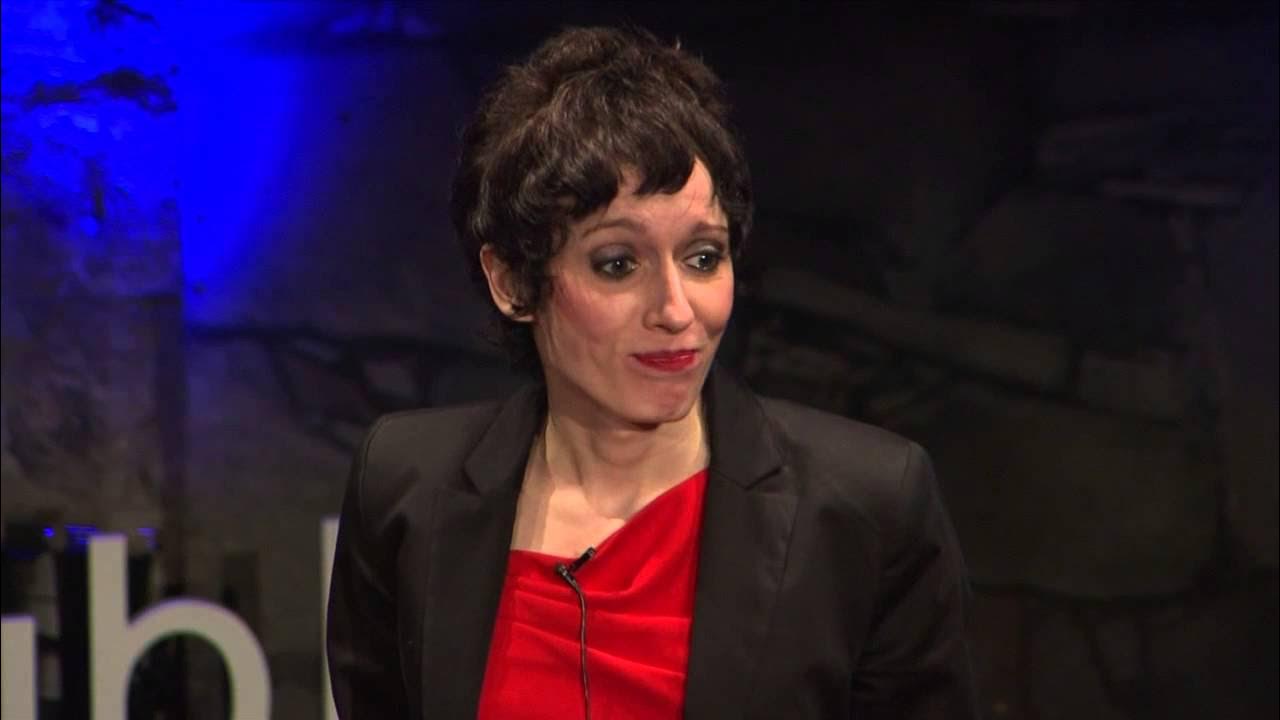How biases in healthcare can be deadly | Safia Hattab | TEDxHopeCollege
Summary
TLDRSophia, a disabled African-American woman, shares her personal journey with the healthcare system, revealing the deep-rooted biases and medical trauma experienced by chronically ill individuals, particularly those from marginalized groups. From childhood health struggles to a rare disease diagnosis, Sophia discusses the systemic issues that lead to neglect and mistreatment, from underdiagnosis to biased assumptions. Highlighting the impact of implicit biases on patient care, she calls attention to the disproportionate healthcare disparities affecting people of color, the disabled, and other intersectional groups. Sophia’s story is a powerful reminder of the urgent need for change in medical care and greater empathy for those facing invisible challenges.
Takeaways
- 😀 The speaker, Sophia, is a disabled African-American woman who shares her personal struggles with the healthcare system, highlighting biases and neglect.
- 😀 Sophia's health journey began with multiple medical issues in her childhood, including asthma and mobility problems, leading to constant ER visits.
- 😀 Despite multiple doctor visits, Sophia was often dismissed or misunderstood, with some doctors making biased assumptions about her illness based on her race and gender.
- 😀 Sophia's diagnosis took 21 years and was only discovered after her best friend found a rare disease that matched her symptoms.
- 😀 Sophia's frustration with the medical system includes instances of unnecessary procedures, such as being prescribed antibiotics for an infection she may not have had, and being pressured into uncomfortable tests.
- 😀 The speaker emphasizes the reality of implicit biases in healthcare, citing studies that reveal how medical professionals unconsciously favor white patients over people of color.
- 😀 Studies also show that minority groups, especially African-Americans and Latine patients, often receive inadequate or different treatments compared to their white counterparts.
- 😀 Sophia discusses how intersectionality—such as race, gender, disability, and appearance—worsens healthcare disparities and leads to unequal treatment, which in some cases can be life-threatening.
- 😀 The speaker addresses the common trauma experienced by chronically ill and disabled individuals, especially those of color, within the medical system, with many enduring neglect and sometimes even abuse.
- 😀 Sophia calls attention to the emotional and physical toll of being a disabled person of color in the healthcare system, where even small details (like dirty underwear) may influence how seriously patients are taken by medical professionals.
- 😀 Sophia concludes by asserting that disabled people, especially those of color, are often treated as inconveniences rather than patients deserving of proper care, urging for systemic change.
Q & A
What was Sophia's initial concern when she tested positive for COVID-19?
-Sophia’s initial concern was that she only had one clean pair of underwear, which symbolized the challenges she faced when going into isolation with limited resources and medical complications.
How did Sophia's childhood medical issues shape her experience with the healthcare system?
-Sophia's childhood was marked by frequent hospital visits, early diagnoses, and medical procedures. Despite these issues, her symptoms were often dismissed by doctors, which shaped her distrust and frustration with the healthcare system.
What role did Sophia’s best friend play in her journey to diagnosis?
-Sophia's best friend played a pivotal role by researching and sharing information about a rare disease that ultimately explained the numerous medical issues Sophia had been experiencing.
How did Sophia’s experience with doctors reflect biases in the healthcare system?
-Sophia experienced biases where doctors dismissed her symptoms, often attributing them to her race, gender, and appearance. Some doctors even accused her of seeking disability benefits, rather than acknowledging her real medical concerns.
What is the significance of the implicit bias study in relation to healthcare disparities?
-The implicit bias study highlighted how doctors, regardless of their race, often showed a pro-white bias, which influenced their perception of patient compliance and care. This bias contributes to healthcare disparities, particularly for people of color.
What specific examples of healthcare disparities does Sophia mention in her story?
-Sophia mentions several examples, including the unequal treatment of Black children in pain management, Latina men receiving less aggressive cancer treatment, and Black newborns receiving less optimal care depending on the race of the attending physician.
What is the impact of intersectionality on healthcare for marginalized groups?
-Intersectionality makes healthcare disparities worse, especially for individuals who fall into multiple marginalized categories, such as disabled Hispanic men or queer white women. These individuals often face compounded challenges in getting appropriate care.
Why does Sophia emphasize the importance of not letting biases prevent access to care?
-Sophia emphasizes that biases in the healthcare system often lead to neglect and mistreatment, which can result in death or serious harm. She advocates for a system where everyone, regardless of background, is treated with respect and dignity.
What does Sophia mean when she says that the medical system often views marginalized patients as 'inconveniences'?
-Sophia suggests that people from marginalized groups, especially those who are chronically ill or disabled, are often treated as burdens or inconveniences in the healthcare system rather than as individuals deserving of care and attention.
How does Sophia’s story challenge the generalizations about disabled and chronically ill people?
-Sophia’s story challenges the idea that disabled and chronically ill people are defined solely by their medical conditions. She stresses that they are multidimensional individuals with rich lives, interests, and roles beyond being patients.
Outlines

此内容仅限付费用户访问。 请升级后访问。
立即升级Mindmap

此内容仅限付费用户访问。 请升级后访问。
立即升级Keywords

此内容仅限付费用户访问。 请升级后访问。
立即升级Highlights

此内容仅限付费用户访问。 请升级后访问。
立即升级Transcripts

此内容仅限付费用户访问。 请升级后访问。
立即升级浏览更多相关视频

Thai Prostitute interview-Tuk

Professor Kimberlé Crenshaw Defines Intersectionality

The Silent HIV Crisis Sweeping the American South

Doctors push for an end to racial discrimination in health care

Hypocritical oaths -- medicine's dirty secrets | Charlotte Blease | TEDxFulbrightDublin

Serving with Compassion | Yudhono Witanto | TEDxUniversitas Brawijaya
5.0 / 5 (0 votes)
